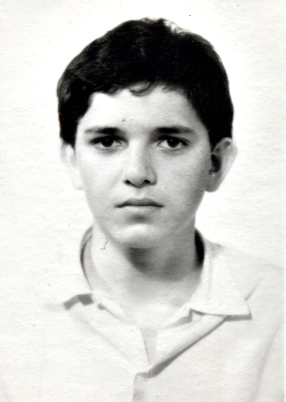Disclaimer. I chose the jokes for analysis, not for entertainment. Some of them might be unpleasant to read. Proceed at your own risk.
Russians love jokes and especially politically incorrect ones. They have anecdotes about many nations, but when I was growing up back in Russia, Americans were treated nicely in these jokes. Americans were used as a background for Russians to laugh at themselves. Here is a very old joke about Russian political realities; this was the version that was told during Jimmy Carter’s presidency:
A Russian and an American are discussing freedom of speech. The American says, “We have freedom of speech. I can stand in front of the White House and shout that Jimmy Carter is an idiot and nothing will happen to me.c
The Russian replies, “I can also stand in front of the Kremlin and shout that Jimmy Carter is an idiot and nothing will happen to me either.”
Or this joke about harsh living conditions:
A Russian and an American describe their houses to each other. The American says, “I have a modest house, three bedrooms, a dining room, a living room, a family room, a kitchen, and a guest room.”
The Russian replies, “I have the same thing, just without the inner walls.”
The following old joke is becoming less and less amusing as the airline service in America increasingly resembles what Russians have always had:
An American is flying on a Russian flight. A beautiful stewardess approaches him and asks, “Would you like to have dinner?”
The American replies, “What are my choices?”
“Yes or No.”
What I am interested to learn from these jokes is whether Russia was preparing for a war with the US during the cold war period. In most cultures, killing a person is a bad thing to do. That means you need an argument to give to solders when you’re asking them to kill other people. Usually governments are not proposing that killing is a good thing to do in general, but rather rationalizing why this particular enemy needs to be killed. For example:
- We need to defend ourselves.
- It is needed for the greater good. For example, they are enemies of the state.
- They are less human than we are. For example, they are pigs or infidels.
- God told us to do this.
Looking at Russian jokes from that period, it’s clear that they weren’t trying to turn Russians against Americans. I therefore conclude that the USSR was not preparing an open attack on the US. Except in the case of a defensive war, one country planning to attack another would need to employ a process of preliminary distancing from their enemy.
The USSR government was capable of manipulating the populace to think that a war is a defensive war when in reality it was initiated by Russia. But no matter how treacherous they were, it would have been difficult to stage this trick across an ocean. My conclusion is that the USSR wasn’t really preparing any open attacks on the US. The whole cold war was a waste of energy, money and resources on both sides.
Now let’s move to modern times. There are still some American jokes in which Russians are laughing at themselves. For example, this one reminds us of the fate of Mikhail Khodorkovsky:
Question: Name the question to which Americans would answer “Sure!” and Russians “God, no!”
Answer: Would you like to change places with the richest person in the country?
The following joke appeared several years ago, and at first I classified it as Russians being over-proud of themselves:
“Can you describe a math department at an American university?”
“Yes, this is a place where Russian professors teach Chinese students.”
This situation changed recently. It moved from Russians being proud of their math traditions to stereotyping Americans as complete idiots. Here is a very recent joke:
Question: What do you call an intelligent person in the US?
Answer: A tourist.
Here is another joke that assumes complete cluelessness of Americans in geography and history:
Question: How do you recognize an American?
Answer: He is proud that the US won the Vietnam war with Hitler in Iraq.
Not only is the stereotype of Americans that they are stupid, but that they are stupider than everyone else:
Question: Dad, why Americans say “eighteen-ninety three” instead of “one thousand eight hundred ninety three”?
Answer: They still have eight-bit processors in their heads.
The situation with jokes about Americans is getting much worse in Russia. There are so many jokes about Americans that many joke websites formed a special category for American jokes. The speed at which the folklore changed from neutral to offensive was very fast. There is no doubt that it is supported from above. It is very useful for the Russian government to redirect the minds of their citizens from internal problems. Americans serve as a scapegoat.
Another thing Russians laugh a lot about is the idea of political correctness:
The new politically correct rules for chess in the US allowed blacks to make the first move.
Of course, a particular anecdote might not reflect the common opinion or, for that matter, the majority opinion. What is interesting is that there is a new trend. Here is a joke about consumerism:
Do you know that according to the latest American research the average speed of a woman walking around a shopping mall is $200 an hour?
The sad part is that the laugh about consumerism extends to a vision of the US government as being completely corrupt:
US — the government of the money, by the money, for the money.
Of course many jokes originated here and were translated from English. It is interesting which ones Russians chose to translate into Russian:
CNN said that after the war, there is a plan to divide Iraq into three parts … regular, premium and unleaded.
I do think that this newly found hatred comes from Putin and the present Russian administration. Russians are very much against the invasion of Iraq and many anecdotes reflect that:
Question: Mr. President, can you prove that Iraq has weapons of mass destruction?
Answer: Yes. We kept the receipts.
In general, the US is perceived as an aggressor.
George Bush found a way to invade every country — he declared war on Gypsies.
Is Russia preparing for war with the US? I do not know. Such a war seems like a ridiculous idea, but if you look at present-day anecdotes, it seems like Russia is doing more preparation than it did during the cold war period. First, Russia has been finding things to blame Americans for:
— What is the most powerful American chemical weapon?
— McDonalds.
Second, Russians are distancing themselves from Americans. Here is a very recent joke, where for the first time I saw that Americans are called “those people”:
Wild turkeys saved pilgrims from hunger. To commemorate this event, every year Americans kill and eat millions of turkeys as a thank you. God save us from doing anything good for those people.
For a long time I have checked the Russian joke websites before I go to bed. But in the last couple of years, I have become uncomfortable with the increasing antagonism towards America, so I decided to write this piece. Now that I finished it, I realized that, it’s sad, but we deserve many of the jokes.
Share:





 This story happened in the summer of 1975. I was 16. Before that, I was naive and brainwashed; by the end of the summer I had grown up. All that summer I was stunned and didn’t know what to do as I watched this story unfold.
This story happened in the summer of 1975. I was 16. Before that, I was naive and brainwashed; by the end of the summer I had grown up. All that summer I was stunned and didn’t know what to do as I watched this story unfold.
 I am celebrating the first hundred essays I have written for my blog. My English teacher and editor Sue Katz edited most of them. Sue Katz not only corrects my English mistakes, but also helps me to choose better and more descriptive words and rearranges my text so that it doesn’t sound like a direct translation from Russian.
I am celebrating the first hundred essays I have written for my blog. My English teacher and editor Sue Katz edited most of them. Sue Katz not only corrects my English mistakes, but also helps me to choose better and more descriptive words and rearranges my text so that it doesn’t sound like a direct translation from Russian.